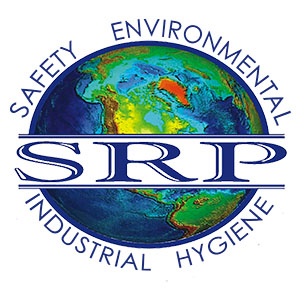For many industrial facilities and construction sites big storms cause big problems. Not only can storm water collect and pool in hollows of land, creating breeding grounds for bacteria and pesky insects, storm water runoff carries debris, sediment, and contaminants.
The U.S. Environmental Protection Agency (EPA) lists a variety of ways for both businesses and residential areas to prevent dangerous storm water runoff. However, once it has swept into a site and collects there, the process of discharging storm water often has business owners jumping through unfamiliar hoops.
Storm water Discharge Permits
The EPA regulates most storm water discharge as such measures help to “prevent stormwater runoff from washing harmful pollutants into local surface waters such as streams, rivers, lakes or coastal waters.”
The agency’s Storm water Basic Information page explains that most states are authorized to implement the NPDES Stormwater Program and administer their own stormwater permitting programs.
EPA remains the permitting authority in a few states, territories and on most tribal lands. For these areas, EPA provides oversight and issues stormwater permits. In short, for inexperienced personnel, correctly filing a permit after a rainy season or unanticipated storm can be a challenge.
The NPDES, or National Pollutant Discharge Elimination System, requires permits for construction and industrial sites as well as municipal sewer systems (MS4s) tasked to handle the transport of storm water.
Even the first step to storm water discharge – discerning whether or not the site is monitored by a state entity or federal branch – can throw a wrench into normal operations.
While larger and older business may already have a Storm Water Pollution Prevention Plan (SWPPP) in place, including storm water site diagrams and familiarity with the permitting process, many businesses are unprepared for storm water runoff and are unequipped to manage the discharge of storm water.
Environmental Consulting Services
SRP Environmental of Shreveport, LA specializes in NPDES Storm Water Permit services to private, industrial, and governmental entities with timely, cost-effective solutions for storm water discharge permit compliance, pollution prevention plans, facility inspections, and employee training.
Our expert consultants, already familiar with EPA regulations and processes, use the client’s Standard Industrial Classification (SIC) code and type of discharge to obtain necessary permits.
In addition to guiding individuals through the permitting process and ensuring safe discharge of hazardous storm water, SRP Environmental also offers training and preparation in Storm Water Pollution Prevention Plan (SWPPP) to aid businesses in developing a strong foundation to anticipate and handle future storm water discharge scenarios.
Consultants are also available to follow up with analysis of SWPPP performance and effectiveness and then make modifications to the plan as necessary.
Additionally, consultants can reduce operating costs as their involvement significantly reduces the risk of fines and fees during storm water compliance inspections.
Environmental services such as those provided by SRP often include discharge monitoring reports to document proper handling of hazardous storm water.
Also, consultants may be able to cut more corners through special permits such as multi-sector discharge permits instead of filing several separate forms or filing incorrectly at a higher expense.
For more information view our Storm Water Plans and Permits page or contact us.

 ">
">
 ">
">